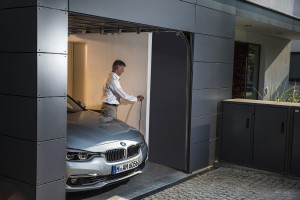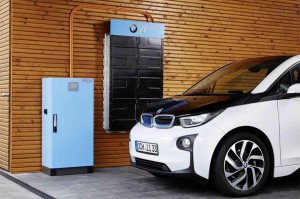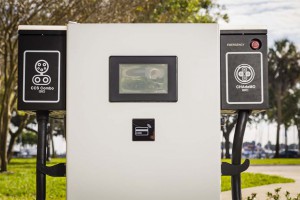It’s been one of the Bavarian maker’s worst-kept secrets. The real question about the all-electric BMW 3-Series has been when and where it will roll out the battery version of its most popular model line.
The answer appears to be September, at the 2017 Frankfurt Motor Show, at least if Germany’s Handelsblatt is on target. The well-respected publication also is reporting that the Electric-3 will boast a range of 400 km, or 250 miles for the metrically challenged. That would seem to position it as a direct competitor to the upcoming Tesla Model 3, especially if BMW can somehow bring the price tag down into the $35,000 to $40,000 range before any government incentives.
Like its German rivals, BMW has launched an aggressive effort to electrify, while also spending heavily on other new technologies such as autonomous driving. To offset those R&D costs, the carmaker’s CFO Nicolas Peter said BMW will have to cut costs elsewhere, among other things, by improving manufacturing efficiency and by reducing traditional internal combustion engine options.
(Aston Martin scales back plans for RapidE, but is developing electric SUV. Click Here for the story.)
While the upcoming reveal of the BMW 3-Series EV seems fairly certain, there are a number of other, unanswered questions. For one thing, considering it’s relatively late in the lifecycle for the compact mainstay, will this actually be just a concept version of an electric model based off the next-generation 3-Series?
And while the 400 km range seems on target, based on other hints BMW has dropped, what sort of calculation will that be based on? The New European Driving Cycle is far more lenient than the current EPA test. If this is an NEDC number, the American rating likely would be closer to 300 km, or slightly short of 200 miles. The Chevrolet Bolt has an EPA rating of 238 miles per charge and the Tesla Model 3 is expected to be in that territory. Tesla is also thought likely to offer optional, longer-range batteries, as it has done with the Models S and X lines.
As for pricing, a base BMW 3-Series goes for around $33,000 in the U.S. The automaker could hold to that number – or even cut the price of a battery version – but considering the cost of electric drivetrain technology, especially the 60 to 70 kilowatt-hours of lithium-ion batteries the Electric-3 would require, well, that would likely mean losing a substantial amount of money on every car sold.
Alternatively, BMW would have to convince buyers that it was worth paying more for its new offering than what Tesla will be commanding. Buyers are likely to compare a number of factors, including performance. While the Model 3 isn’t expected to match the numbers delivered by a Model S P100d with Ludicrous Mode – in the area of 2.3 seconds 0-60 – it’s expected to come somewhere in the low to mid 5-second range.
(Why is Waymo teaming up with Avis and Apple with Hertz? Click Here to find out.)
To add some perspective: BMW currently puts an MSRP of $42,400 on its i3 city car – and that’s with the smaller of two battery packs. Range and performance are nowhere near what one should expect from the electrified 3-Series, though the i3 does have a lightweight carbon fiber body to help maximize range.
What seems clear is that BMW is preparing to make a major push into battery space. And it will be costly, especially when you add in the price tag for development connected and autonomous vehicles.
R&D costs hit 5.5% of revenue, or $5.16 billion last year, and are expected to soon climb to 6 percent. The company hopes to offset that by streamlining its manufacturing operations, for one thing. It also intends to cut back on the number of engine and other variants it offers customers.
“We have over 100 steering wheels on offer. Do we need that many variants?” CFO Peter told journalists on Wednesday. “In the 5 series we have four diesel engines on offer. I would not bet on there being four diesel engines on offer in the next generation vehicle.”
That said, it doesn’t seem like BMW will abandon its efforts to full potentially lucrative niches with new products. And, in the coming years, that will lead it to launch a variety of new electrified models, including the battery-electric version of the i3.
(Most American households can no longer afford a new car. Click Here for the story.)



